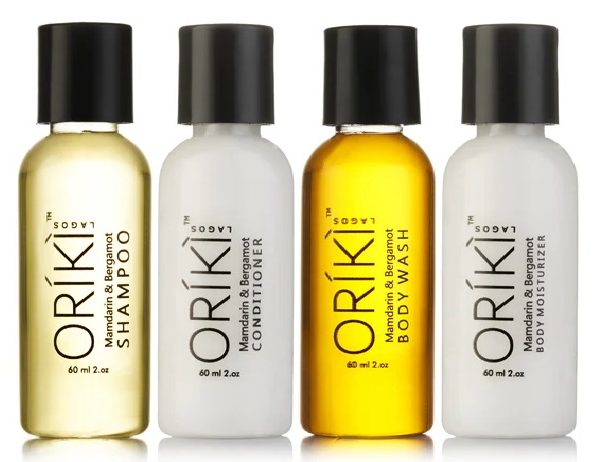Redefining Beauty – Wellness, Technology and Personalization

Traditionally, beauty in many African cultures was closely tied to grooming, cosmetics, and skincare routines, and in recent decades, this has been largely influenced by global beauty standards. However, a new movement is emerging—one that emphasizes a holistic approach where beauty is seen as a reflection of inner health and well-being; an attempt to reconnect with the continent’s history; a rich heritage in wholesome wellness and beauty. This shift is reshaping the market, encouraging brands to rethink their strategies to meet the evolving needs of African consumers.
As more people embrace wellness-focused lifestyles, they are looking for beauty products that go beyond surface-level results. They want skincare solutions that nourish their skin while also aligning with their health-conscious values. At the same time, advancements in data-driven technology are making personalized skincare more accessible, allowing consumers to receive tailored recommendations that suit their skin type, climate, and lifestyle. This evolving landscape presents both challenges and opportunities for beauty brands aiming to remain relevant in a competitive and rapidly growing market.
The Shift Toward Holistic Self-Care
African consumers are moving beyond traditional beauty routines to embrace a more holistic approach that integrates skincare, health, and mental well-being. This shift is driven by an increasing awareness of the connection between lifestyle and physical appearance. Consumers are recognizing that beauty is not just about external enhancements but also about maintaining a balanced diet, managing stress, and adopting healthier habits. This change is influenced by global wellness trends, but it is also deeply rooted in African traditions that have long valued natural remedies and self-care rituals.
At the same time, the demand for clean and sustainable beauty products is growing. Many consumers are becoming more conscious of the ingredients in their skincare and cosmetics, favoring organic and chemical-free options. The preference for plant-based solutions aligns with traditional African beauty practices that rely on natural ingredients like shea butter, baobab oil, and moringa. Additionally, sustainability is playing a key role in purchasing decisions, with more consumers supporting brands that use eco-friendly packaging, ethical sourcing, and cruelty-free formulations.
Personalization in African Skincare
Technology is also transforming the beauty industry in Africa, making personalized skincare solutions more accessible. Artificial intelligence (AI) and skin diagnostic tools are being used to analyze individual skin concerns and recommend tailored products. Many African consumers, especially those in urban centers, are turning to mobile apps and digital platforms for skincare advice, moving away from generic beauty products to formulations that address specific issues like hyperpigmentation, acne, and dryness. This level of personalization is particularly important in Africa, where climate variations and different skin types require specialized solutions.
Beyond AI-driven recommendations, data analytics is helping brands create localized skincare formulations that cater to regional differences. For instance, skincare needs in the humid climate of Lagos differ from those in the drier conditions of Johannesburg. By using consumer data to understand these differences, brands can develop targeted products that resonate with local preferences. Furthermore, e-commerce platforms are integrating digital skin consultations, allowing consumers to receive expert advice remotely and make informed purchasing decisions. This shift towards digital engagement is making high-quality skincare more accessible across the continent.
What This Means for Beauty Brands
For beauty brands looking to succeed in Africa, the intersection of wellness and beauty presents new opportunities. Companies must position their products as part of a broader self-care routine rather than just cosmetic solutions. This means highlighting the health benefits of ingredients, promoting stress-relief properties, and aligning beauty with overall well-being. Consumers are no longer just looking for makeup or skincare; they want products that enhance their quality of life. Brands that communicate this effectively will build stronger connections with their audience.
Additionally, personalization and inclusivity will be key differentiators in the African beauty market. Consumers are increasingly drawn to brands that understand and cater to the unique characteristics of African skin. Offering a diverse range of products, leveraging digital tools for customization, and incorporating familiar natural ingredients will set brands apart. Lastly, authenticity remains essential—African consumers appreciate brands that acknowledge local beauty traditions and integrate them into modern skincare solutions. Those that can merge technology, wellness, and cultural relevance will be best positioned for long-term success.
As global wellness trends propel the market, expected to surge from $4.4 trillion in 2020 to nearly $7 trillion by 2025, African beauty brands are at a pivotal moment. Today’s consumers demand more than just aesthetics; they seek products that nurture overall well-being and promote a healthier lifestyle.
Our comprehensive report delves into how the dynamic convergence of wellness and beauty is reshaping consumer behavior across Africa and what this could mean for your brand. The report explores the critical insights about how consumers are transforming traditional beauty paradigms into holistic self-care experiences. Download a free copy of the report via the link here.
Ready to invent the future?
Our teams possess extensive in-market experience that drives measurable growth for brands. Please reach out to us to learn more.
